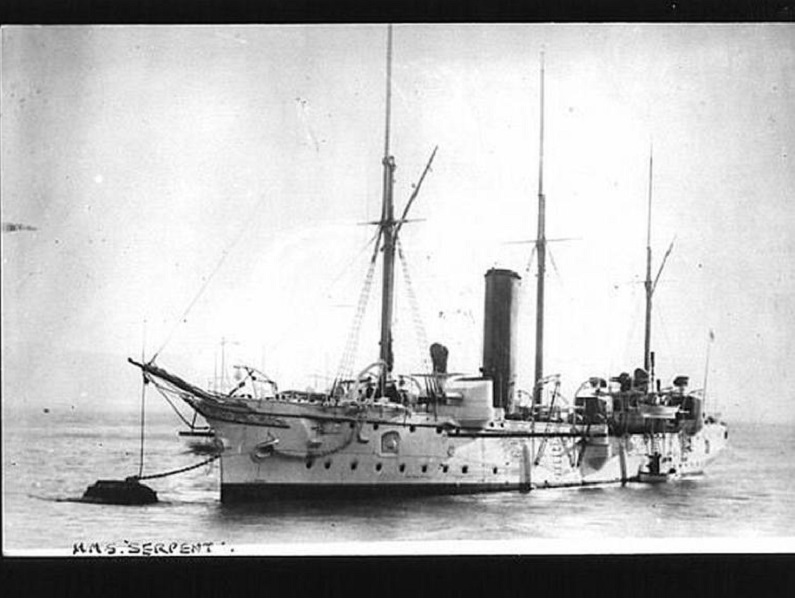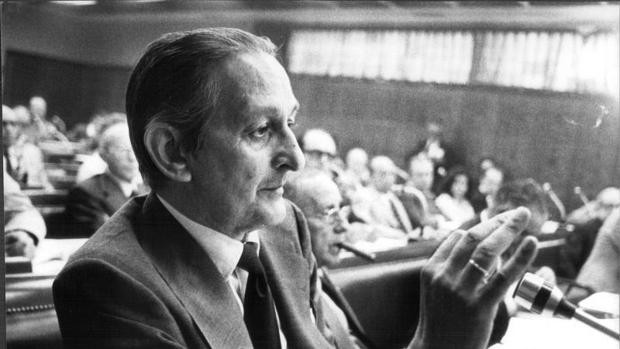November 10
Saint’s Day for Modesto, Florencia, Trifón, Demetrio, Andrés Avelino and León Magno.
1821 - Cry of Independence by Rufina Alfaro at La Villa de Los Santos, Panamá, setting into motion a revolt which led to Panama's independence from Spain and to it immediately becoming part of Colombia

HMS Serpent - https://www.adiantegalicia.es/
1978 - Adult age in Spain is reduced from 21 to 18 years.
1997 - Picasso’s ‘The Dream – El Sueño’ is sold for 7,000 million pesetas at Christie’s auction house in New York.
The lockdown will last until 23 November. Exemptions are for work, medical and education
Moving between 785 municipalities prohibited except for justified reasons
Commerce and hostelry businesses have to close at 1800, home deliveries continue, shopping for necessities and sports outdoors
Colleges and educational schools remain open but Universities teaching remotely and Granada Province is closed for all non-essential activities
Births
1684 - Francisco Solano de Luque, doctor, physician and researcher (d. 1738)
1764 - Andrés Manuel del Río, Spanish-Mexican scientist and discoverer of vanadium (d. 1849)
1766 - Andrés Esteban Gómez, priest (d. 1831)
1913 - José Manuel Blecua Teijeiro, philologist (d. 2003)

1915 - Torcuato Fernández Miranda, was a Spanish lawyer and politician who played important roles in both the Spanish State of Francisco Franco and in the Spanish transition to democracy.
By the age of 30, Fernández Miranda had already served as a lieutenant for the Nationalists in the Spanish Civil War and begun a promising career as a law professor; that year, he earned a chair at the University of Oviedo, of which he would later serve as rector, 1951 to 1953. He was destined to make his biggest impact in public service, however.
Franco chose him to serve as the government's Director-General of University Education in the mid-1950s, and gave him an even weightier assignment in 1960: Fernández Miranda was entrusted with the political education of Prince Juan Carlos, whom Franco had tapped to carry on as his successor as the King of Spain, after the death of the caudillo. After having endured years of military training, Juan Carlos credited Fernández Miranda with being the first of his tutors to teach him to rely on independent thinking.
In the final years of the Francoist State – Franco would die 20 November 1975 – Fernández Miranda also played an important political role as a high-ranking member of the Movimiento Nacional (National Movement), the Francoist State's only legal political party. He served as interim Presidente del Gobierno (prime minister) for a few weeks in December 1973, after the assassination of Luis Carrero Blanco. He had been Carrero Blanco's principal deputy prime minister. Although Fernández Miranda was one of the top candidates to succeed Carrero Blanco, the job of prime minister—Franco's last, as it would turn out—went to Carlos Arias Navarro.
Shortly after Franco's death, Juan Carlos became king. He retained Arias Navarro as prime minister but, in a nod to his political mentor, named Fernández Miranda speaker of the Cortes (the legislature) and president of the Consejo del Reino (Council of the Kingdom) in the transition government. In these roles, Fernández Miranda was able to push a willing king toward the development of a democracy.
Fernández Miranda sought to establish a two-party system, with one conservative party and one liberal party. He suggested legitimizing the suppressed PSOE (Spanish Socialist Workers' Party), which was leftist but anti-communist, for the liberal role.
Upon Arias Navarro's resignation in 1976, Spain was still operating under Francoist law; it was Fernández Miranda's job, as head of the Council of the Kingdom, to suggest three names to the king for a new political leader. He placed the reformist Adolfo Suárez on his list, despite Suárez' relative inexperience. Suárez was duly selected, and soon called for a political reform law, to be followed by democratic elections, Spain's first in 40 years.
The law professor Fernández Miranda, still serving as speaker of the Cortes, was the principal author of Suárez' Ley para la Reforma Política (Political Reform Act), approved by the Government in September 1976, by the Cortes in November 1976, and by a popular referendum 15 December 1976.
Although he played a large role in the transition to democracy, Fernández Miranda remained a political conservative. Following Suárez reforms with which he disagreed—such as the legalization of the Communist Party of Spain and increasing tolerance of decentralization – the speaker resigned from the Cortes prior to the first election, 15 June 1977.
After the election, he was named by the king to the Spanish Senate, which now became the upper house of a bicameral Cortes. He served there for one term, representing the UCD, until 2 January 1979. He was later created 1st Duke of Fernández-Miranda and Grandee of Spain on 31 May 1977. In 1977 or 1981 he also became 1,181st Knight of the Order of the Golden Fleece. He died of a heart attack in 1980 while traveling to London.
1920 - Rafael del Pino, businessman, founded the Ferrovial Company born in Madrid (d. 2008)1929 - Luis García-San Miguel, judge (d. 2006)
1931 - Francisco Pastor, poet and gallery owner.
1951 - Patxi Pagoaga, handball player
1954 - Juanito, footballer striker (34 caps. Real Madrid, 284 games, 85 goals) born in Fuengirola (Málaga) (d. 1992)
1969 - José Antonio Ramos, musician (d. 2008)
1976 - Sergio González Soriano, footballer and manager
1978 - Julián López, actor and comic.
1989 - Ana Fernández García, actress.
1990 - Mireia Belmonte, swimmer
Deaths
1285 - Pedro III of Aragón (b. 1240 in Valencia)
1644 - Luis Vélez de Guevara, author and playwright (b. 1579)
1908 - Alejandro San Martín y Satrústegui, doctor and politician (b. 1847)
1936 - Ricardo Cortes Villasana, politician (b. 1890)
1975 - Manuel Aznar Zubigaray, founder of the EFE news agency. He was Spanish Ambassador to the United Nations, Morocco, Argentina and the Dominican Republic, was editor of La Vanguardia newspaper, and grandfather of the former Partido Popular Prime Minister, José María Aznar.
1991 - Montserrat Roig, writer.
2003 - Ignacio María Alcorta Hermoso, "Cholín", footballer (b. 1906)
